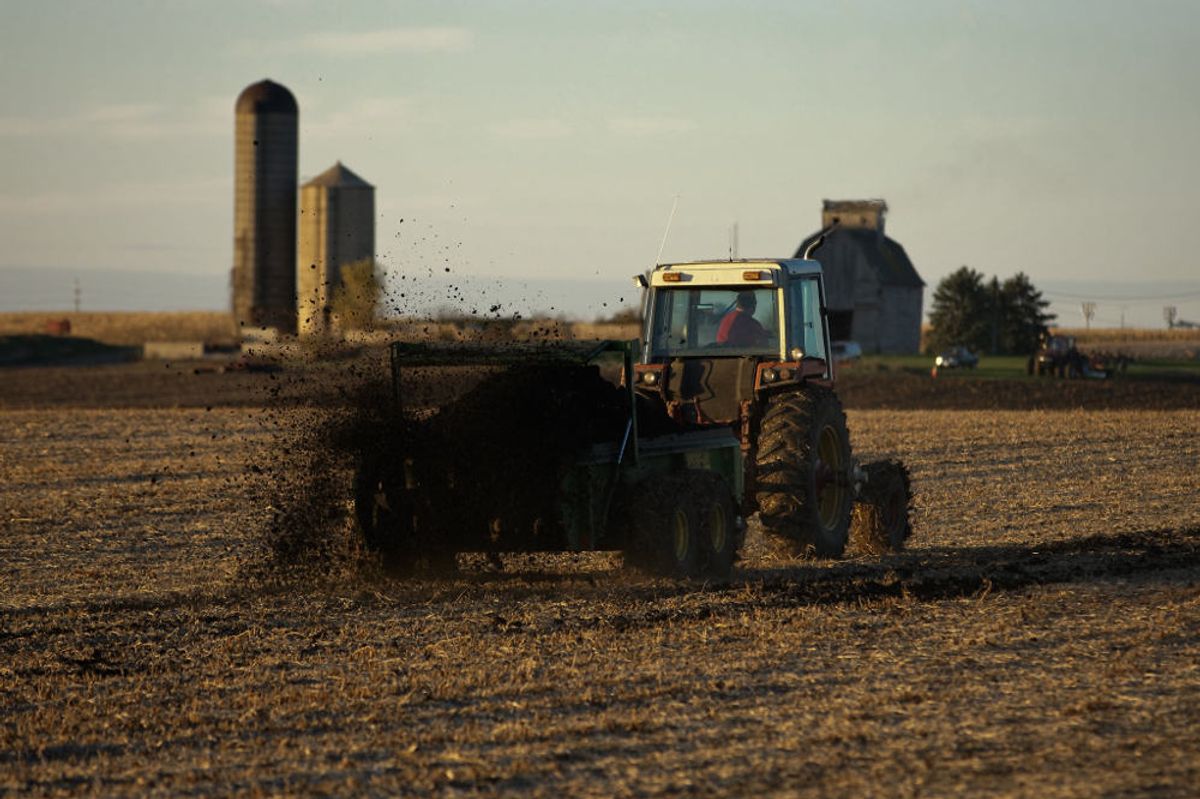
Two environmental hazards are emerging in tandem with the promise of disruptions to municipal financial markets. One, global warming, has received widespread attention; the other, toxic waste, less so.
Sea level rise due to a climate change presents an existential threat to coastal towns and cities as they experience a steady gnawing away of their land boundaries, and with it the tax revenue of washed away property and infrastructure. They also face additional costs for maintenance and renovation.
Agricultural communities, like their seaside sisters, also face an existential threat from land permanently rendered toxic because of toxic-laden industrial and urban sewage sludge, also known as biosolids, used as fertilizer.
By simply not using sewage sludge, the threat to farming communities is avoidable. For most of them there may still be time to reduce, if not avoid altogether, the risk of permanent harm to agricultural lands and its impact on human health and the environment.
Toxic fertilizer
Thanks to national, state and local programs, agricultural lands are the go-to disposal sites for sewage sludge, which is being produced in ever increasing volume and levels of toxicity, containing all manner of industrial and communal (mostly urban) sewage solids and effluent.
The Environmental Protection Agency is the federal agency charged with protecting the public and the environment from adverse effects of exposure to sewage sludge. In addition to a list of assumed contaminants — such as heavy metals, microplastics, radioactive waste and pathogens — the agency requires evidence of toxicity of any given sample of sewage sludge before deeming it harmful to human health or the environment. Each sample may vary widely. In effect, aside from that list and limited treatment protocols, the EPA, while labeling it a pollutant, assumes sewage sludge to be harmless until proven otherwise. It is labeled by the EPA as “biosolids” and is provided free of charge to farmers to fertilize their farmland.
For agricultural communities, the offer of free fertilizer is difficult to refuse. For urban and industrial regions, the disposal of sewage sludge on agricultural land as fertilizer is a relatively convenient and cheap solution. However, the recent and alarming revelation of PFAS in sewage sludge is calling into question the assumption of harmless biosolids.
PFAS, short for per- and poly-fluoroalkyl substances, belong to a class of highly toxic chemicals developed in the mid-twentieth century. They are carcinogens and endocrine-disruptors, meaning they alter the proper functioning of hormones and are linked to kidney and testicular cancer, liver and thyroid problems, reproductive problems, pregnancy-induced high blood pressure, low birthweight and increased risk of birth defects, among other health problems. They are commonly found in a wide variety of products such as water-resistant fabrics, non-stick cookware and personal care products that are readily disposed of in the sewage system.
PFAS are among the many hundreds of thousands of chemicals of concern that are readily taken up in food crops and by livestock. They also leach into water systems and are blown in the wind to neighboring regions. Their “forever” character furthers their penchant to accumulate in land, water and organisms with each application. Once spread on an open field, remediation of the damage is doubtful. Each additional application adds to the problem.
But communities are taking notice. In 2022, the state of Maine banned the “land application of sewage sludge,” restricting disposal to monitored landfills. Connecticut has banned the use of “bio-waste” as fertilizer. Numerous farming communities have expressed similar concerns about the use of sewage sludge as fertilizer, but have met with stiff resistance from the chemical industry, the sewage sludge hauling industry and farmers who remain unconvinced of the harm.
Sewage sludge impacts to municipal bonds
Financial markets are watching closely. The prospect of farmland laden with PFAS and any of the many toxics potentially found in sewage sludge lends a more literal meaning to the term toxic assets. The current and long-term wellbeing of agricultural lands determine the community’s economic wellbeing and taxable income. The use of toxic fertilizer threatens their ability to meet current operational and structural expenses, as well as long-term debt obligations.
Doubt about the integrity of long-term debt obligations, such as municipal bonds, will have an adverse impact on the community’s ability to meet current needs and to plan for the future. The future of agricultural communities is now in the world of long-term investments, such as municipal bonds. They cannot wait 10 or 20 years for the problem of soil contamination to reach a crisis point.
Meeting its investment responsibilities originates with the community’s governing entity, specifically its governing board (e.g., board of supervisors). Those responsibilities are increasingly scrutinized by public entities, such as the Securities and Exchange Commission, private credit rating agencies and risk-conscious insurance underwriters. Included in this increased scrutiny are farm mortgage companies such as farming cooperatives that now specifically ask farmers to declare in their loan application whether or not they use or have ever used sewage sludge on the agricultural lands to be mortgaged.
Political posturing that has guided the planning and policies of local communities, including allowing free sewage sludge on farms, now must be reconciled with fact-based analysis. Financial offerings of municipalities are the subject of growing interest: The fact-based thinking and cold analysis of investment models are playing an ever more important role in rating municipal bonds.
The responsibilities of community governing boards in matters of finance may require those bodies to consider more closely the practical, financial and legal consequences of failing to exercise due diligence and public disclosure in matters concerning the land disposal of sewage sludge on agricultural lands. For financial regulators, investment managers and issuers of securities, disclosure is essential for fiduciary responsibility. Fiduciary responsibility goes to the heart of sound investments and economic wellbeing for those selling and those buying municipal bonds.

